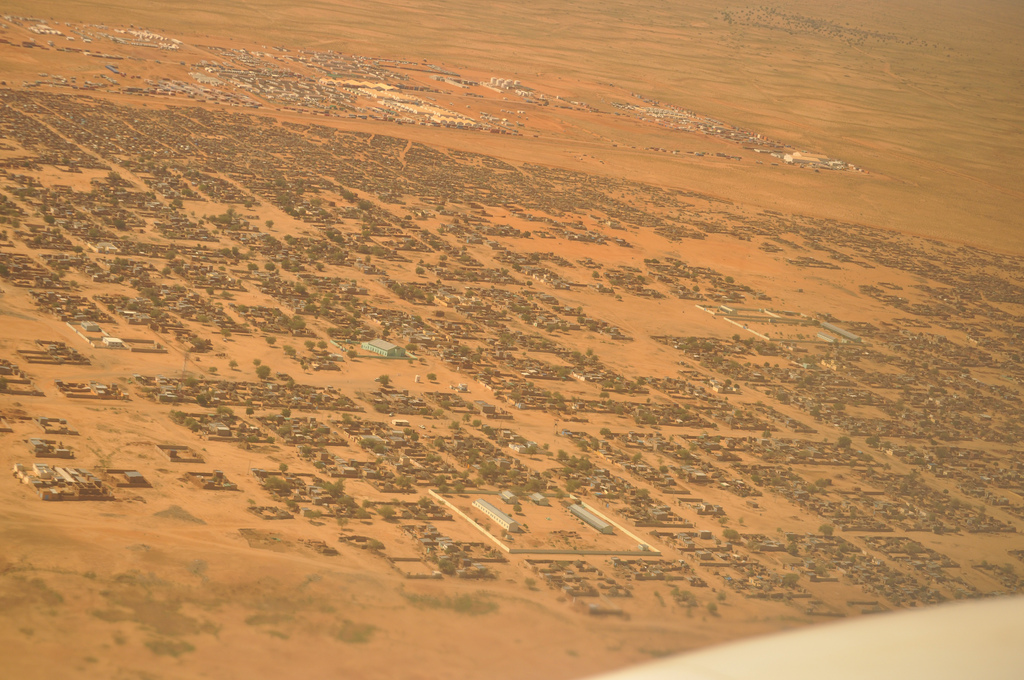Science
Yale Lab Uncovers Mass Killings in Sudan, Urges Student Action

The Yale Humanitarian Research Lab has reported evidence of mass killings in El-Fasher, North Darfur, attributed to the Rapid Support Forces (RSF). This alarming revelation follows the RSF’s capture of the city, where satellite data and open-source analysis confirm multiple incidents of violence against civilians.
On Monday, Nathaniel Raymond, the lab’s executive director, detailed that initial reports indicated approximately 1,200 fatalities, which later escalated to 10,000 by the evening. By Tuesday, communication with local contacts ceased, leading to fears that many may have been killed. “We assume our ground contacts are dead,” Raymond stated, highlighting the dire situation.
The lab, which has previously focused on various humanitarian crises, began issuing warnings about potential violence in El-Fasher as early as July 2023. Over the past two and a half years, it has reached out to the United Nations Security Council multiple times and provided warnings to key U.S. government bodies.
Evidence of Systematic Violence
The lab’s initial report was released on Monday, detailing RSF operations in civilian neighborhoods, including the Daraja Oula area. Analysis of satellite imagery indicated the presence of RSF vehicles, some armed, blocking streets and signs of violence, such as red discoloration in the soil and objects resembling human bodies.
In a follow-up report on Tuesday, the lab documented systematic killings at critical locations, including a maternity hospital that served as the last operational medical facility in El-Fasher. The report highlighted satellite images showing dark objects consistent with dead bodies near the former children’s hospital, converted into a detention center. Video evidence posted by RSF soldiers depicted executions occurring within the hospital, further emphasizing the brutality of the situation.
Raymond expressed grave concern about the level of violence, stating, “I haven’t seen violence like this since Rwanda.” He noted that the speed and intensity of the RSF’s actions over recent days surpass anything he has encountered in his 26 years of humanitarian work.
The Broader Context of the Conflict
The ongoing conflict in Sudan, which erupted in April 2023, has resulted in over 150,000 civilian deaths and displaced approximately 14 million people, according to reports from the BBC. The primary conflict pits the RSF against the Sudanese Armed Forces (SAF) in a struggle for control of the nation. The RSF, commanded by General Mohamed Hamdan Dagalo and backed by the United Arab Emirates, has roots in the Janjaweed militia responsible for the Darfur genocide in 2003.
Alden Young, an associate professor of history and global affairs, noted that the forces involved in the conflict are likely motivated by historical grievances and aspirations of ethnic cleansing in Northern Darfur. El-Fasher had been the last stronghold of the SAF in the region, enduring an 18-month siege before succumbing to the RSF.
The Yale Humanitarian Research Lab has consistently documented the escalating violence, including the El-Geneina massacre in June 2023, where between 10,000 and 15,000 civilians, primarily from the Massalit tribe, were killed. Kholood Khair, a peace fellow at the Jackson School of Global Affairs, remarked on the troubling parallels between current violence in El-Fasher and earlier events in Darfur.
Raymond criticized the international community for its lack of action, suggesting that nations such as the United States and the United Kingdom have prioritized economic ties with the United Arab Emirates over the lives of Sudanese citizens. He expressed hope that U.S. President Donald Trump would publicly address the RSF and the UAE regarding the atrocities, emphasizing the need for accountability.
Despite the increasing violence, Raymond pointed out that there has been limited student activism on U.S. campuses, including Yale. He urged students to mobilize, invoking the spirit of the Save Darfur movement that gained momentum two decades ago. “I don’t think Yale students know how powerful they are. They’re very powerful, if they choose to be,” he said.
The Humanitarian Research Lab is part of the Yale School of Public Health and continues its critical work documenting the ongoing humanitarian crisis in Sudan. As the situation develops, the lab and its advocates call for urgent action and awareness from the global community.
-

 Science2 weeks ago
Science2 weeks agoResearchers Challenge 200-Year-Old Physics Principle with Atomic Engines
-

 Politics2 weeks ago
Politics2 weeks agoNHP Foundation Secures Land for 158 Affordable Apartments in Denver
-

 World7 days ago
World7 days agoBoeing’s Aircraft Production: Assessing Numbers and Challenges
-

 Lifestyle5 days ago
Lifestyle5 days agoTrump’s Push to Censor National Parks Faces Growing Backlash
-

 Lifestyle6 days ago
Lifestyle6 days agoRed Bluff High School’s Elli Nolan Named Rotary Student of the Month
-

 Entertainment6 days ago
Entertainment6 days agoSyracuse Stage Delivers Lively Adaptation of ‘The 39 Steps’
-

 Health2 weeks ago
Health2 weeks agoNeuroscientist Advocates for Flag Football Until Age 14
-

 Lifestyle2 weeks ago
Lifestyle2 weeks agoLongtime Friends Face Heartbreak After Loss and Isolation
-

 Science6 days ago
Science6 days agoAI Misidentifies Doritos Bag as Gun, Triggers Police Response
-

 Politics5 days ago
Politics5 days agoNFL Confirms Star-Studded Halftime Show for Super Bowl LVIII
-

 World2 weeks ago
World2 weeks agoGlobal Military Spending: Air Forces Ranked by Budget and Capability
-

 Health2 weeks ago
Health2 weeks agoFDA Launches Fast-Track Review for Nine Innovative Therapies









